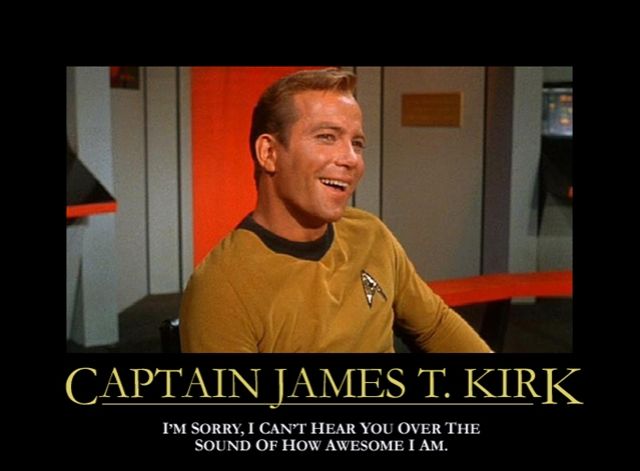This week I wrapped up my Maven Content Flagship workshop with a session on how to talk yourself up — without wanting to hide in a cave.
Most writers and business owners I know feel that writing about themselves is one of the hardest tasks they face when they’re putting their content marketing together.
It just feels so … ugh.
Today I want to talk about three reasons that comes up … and how we can disarm these and move forward.
#1. We don’t want to be arrogant
When it’s time to toot our own horns about our skills and experience, it’s easy to worry that we’re coming across as arrogant. (Some cultures struggle a lot more with this than others.)
Most of us have someone in our timeline who seems to make everything about themselves. Their incredible vision, their superpower skill set, the amazing breakthrough results they personally created for their clients, and on and on and on.
And we’re worried about being That Person.
Even if we actually do have a pretty remarkable vision, a terrific skill set, and we actually do create breakthrough results for clients.
What do we mean by arrogance?
When we perceive someone as arrogant, what does that actually mean?
- They talk about themselves as the “single point of success” for their projects
- They don’t acknowledge the contributions of others
- They think they’re more skilled than they actually are
- They believe they’re uniquely blessed with talent and intelligence
- And more than anything, they turn every conversation toward themselves.
“But enough about me, let’s talk about you. What do you think about me?” – CC Bloom, Beaches
Arrogant people do exist, and some people definitely have an exaggerated sense of their own contributions.
Here’s the thing: Most people who worry that they might be arrogant are not. Because arrogant people don’t question themselves.
Realize that some flavor of imposter syndrome (more correctly called imposter experience) is a normal and natural part of getting good at what you do.
If you want to guarantee that you don’t accidentally become arrogant (honestly, this isn’t going to happen), make a habit of acknowledging others.
Thank colleagues, team members, clients, mentors, and anyone else who helped make your most recent project a success. Do it publicly, if you can. (Social media works really well for this.)
Acknowledgment is the antidote to arrogance.
#2. People on the internet are mean
If you publish anything — ever — on the web, you probably worry sometimes about how people will react.
Specifically, how the mean people will react.
A recurring theme from Seth Godin’s work is that we don’t worry about failure nearly as much as we worry about criticism.
“What people are afraid of isn’t failure. It’s blame. Criticism.” – Seth’s blog
But as much as I do admire Seth, he and I part ways slightly on this. Because I don’t think it’s easy to stop caring about criticism. And I don’t think we necessarily should.
Living in community, we’re going to face some criticism. Some of it is fair and some isn’t. But only sociopaths and narcissists truly “don’t care what other people think.”
If you’ve developed a thick skin and have learned how to shake off unreasonable criticism, that’s fabulous. I admire you!
But if you haven’t … that doesn’t mean you’re weak or neurotic or that you’re “not cut out for this.”
I know tons of very successful people who are gutted by criticism. (Rejection sensitivity is also a component of some types of neurodiversity.)
Fear of criticism is normal and natural, and it can be managed. It’s not healthy when it keeps you from making any step at all. But I don’t think we should frame it as a character flaw or something that we can overcome by just trying a little harder.
The best tool to manage fear of criticism, in my experience, is a group of peers who truly have your back.
Get people you respect to look at your work and give you honest, compassionate feedback.
Focus on your strengths. And build smart workarounds for what you’re not great at.
Supportive peers are the antidote to fear of criticism.
#3. We’ve had our confidence eroded
No matter how egalitarian your culture might be, some people are assigned a category that’s not allowed to be confident.
Every woman who’s been in the workforce for more than five minutes has seen it. Behavior perceived as healthy confidence in a man is perceived as arrogance, bitchiness, or being “full of yourself” in a woman.
If you hold a card that’s not privileged by your culture (you’re female, you’re gay, you’re trans or nonbinary, you’re neurodiverse, you’re Black or Brown, etc. etc. etc.), your healthy confidence is a threat to the status quo of that culture.
You’ve received messages (some subtle, some overt) that “you don’t belong here.”
And not only has that eroded your confidence, it’s probably kept you from doing your best work.
True confidence comes from doing something excellent. But we don’t all get equal opportunities to pursue that excellent work.
I think it’s important to acknowledge that there’s nowhere on earth with a culture of perfect equality. Every community and culture has privileged categories. And whether or it’s intended, those with privilege tend to gaslight those without, by treating them as less capable or less worthy.
And yet. We’ve all got to move forward with the deck of cards we were given.
It’s wise to look for communities and environments that are more equitable, but we’ll never find a community that’s perfect.
Representation is an important part of moving forward. Look for the mentors and role models who look like you. You don’t need to make them into flawless heroes, but they do help you see a new set of possibilities.
And when you can, be that person. If you’ve succeeded against the odds, stand up and let yourself be seen. Every time you talk about something you’ve accomplished, you help another person see new options for themselves.
Supportive and inclusive community is the antidote to privilege gaslighting.
What it boils down to
Honestly, the odds are good that you are pretty awesome. You’re probably very good at what you do, and you probably have the ability to solve real problems for your audience.
If you find it difficult to talk about your skills and abilities, you aren’t alone. But it’s worth the effort to work through the discomfort and step forward, and to collect the resources that will help you do that.
Because the world needs what you do well. And it needs you to do it.
That’s The Fierce for this week! Hope your year has been off to a great start so far. 🙂
Sonia

